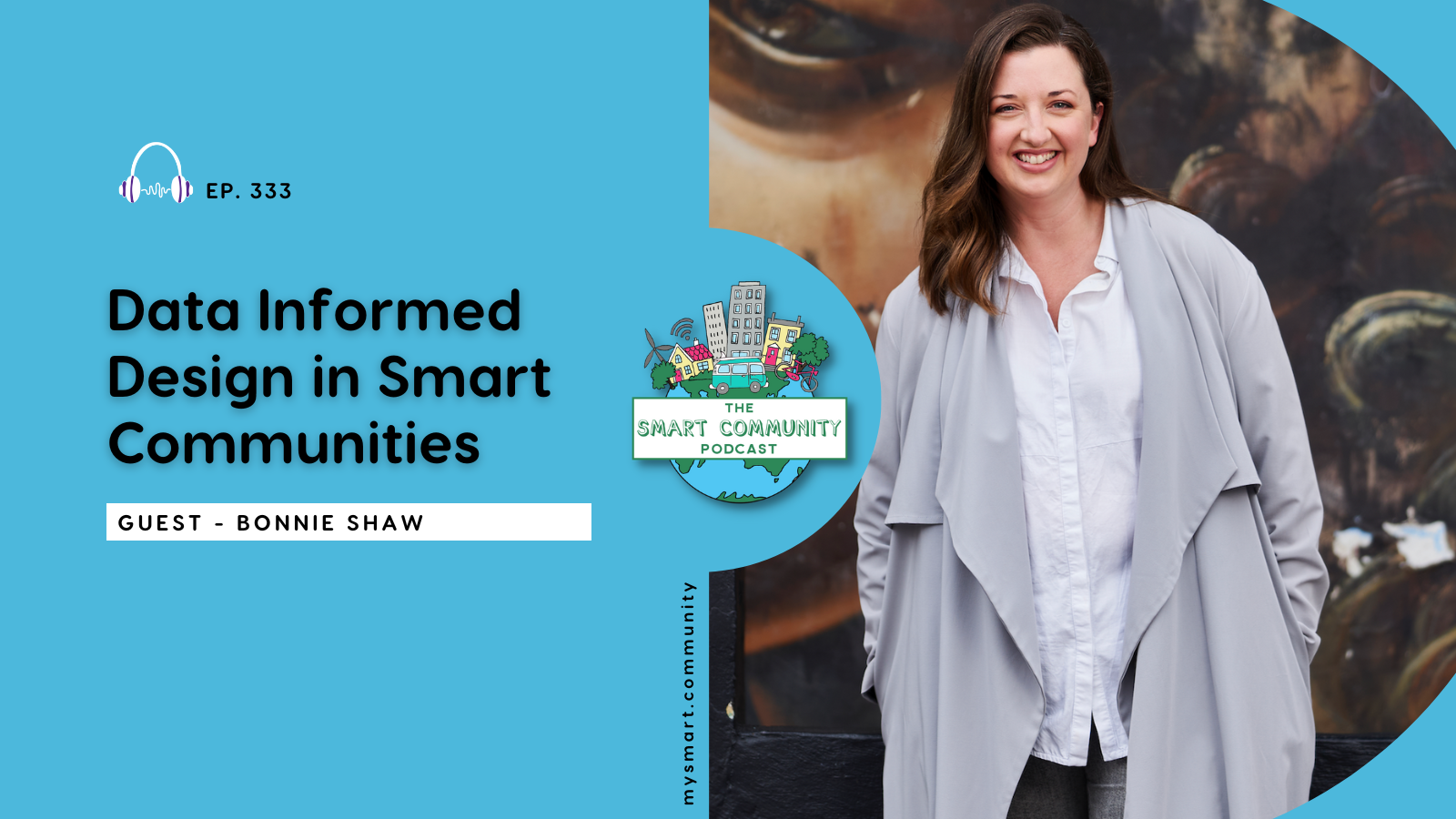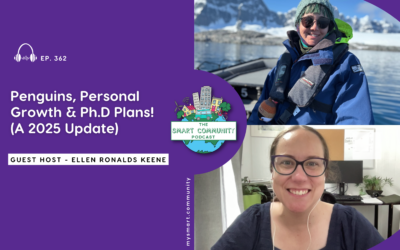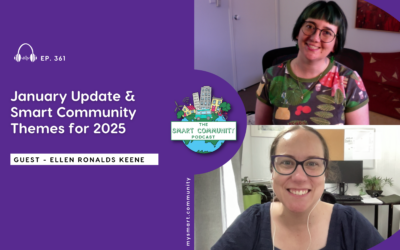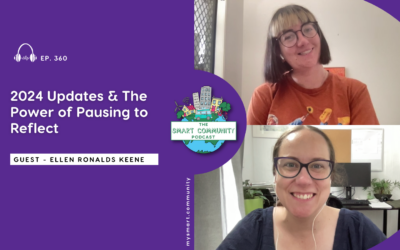Hi #SmartCommunity friends, welcome to this bonus episode of the podcast! We will be kicking off Mobility March next week but this week I wanted to share this fantastic conversation I had with Bonnie Shaw. Bonnie is co-founder of Place Intelligence, a geo-AI startup focused on democratising access to big data to support evidence based design, policy and decision making. She has a varied background in landscape architecture, urban design and game design and in her role as the Smart City Practice Lead at the City of Melbourne, Bonnie helped to establish and lead Australia’s first (and multi-award winning) Smart Cities team.
In this episode, we talk about the importance of building literacy and critical thinking around Smart concepts in our Smart Communities, and Bonnie’s framework for meaningful change that looks at toolset, skill set, and mindset. Bonnie tells us about Place Intelligence and some of the projects they’ve been working on, including the Data Informed Design conference which will be held in Melbourne on the 23rd and 24th of March 2023. Tickets are out now so click the link to get yours now! Bonnie and I finish our chat discussing the emerging trend of opportunities for engagement to help people understand the things that are influencing our lives, plus how game design helps us approach community engagement! As always, we hope you enjoyed listening to this episode as much as we enjoyed making it.
Listen here:
What we cover in this episode:
- Bonnie’s varied background in landscape architecture, urban design and game design
- What a Smart Community means to Bonnie
- The importance of building literacy and critical thinking around Smart concepts
- A framework for meaningful change that looks at toolset, skillset and mindset
- The impact of long term stress on our thinking and decision making
- How we can use data to understand our biological systems and manage stress
- The similarities and differences between human stress and city resilience work
- Projects Bonnie’s been working on with her company Place Intelligence
- Data points used in decision making and place making
- The design challenge of hybrid workplaces and what Covid taught us about remote work
- Understanding above the line and below the line operations
- Removing bias and broadening perspective of how places function over time
- Above the line, below the line operations…
- The Data Informed Design conference 2023
- Emerging trend of skillsets and mindsets around AI tools
- The Overton Window of social license theory
- Why we need more opportunities to help people understand the things that are influencing our lives
- How game design helps us approach community engagement
Quotes:
“A Smart Community is one where people have the opportunity to participate in the decision making process that shapes their environment. And increasingly, I think that same approach has to underpin a technology enabled environment where people need to be able to participate, but they need to do it in a way that is literate.”
“Because so many of the systems that we engage with now are so deeply complex, and have so many hidden layers to them, that it’s very difficult for people to have literacy. [Literacy] is not just knowledge, it’s actually being able to deeply understand them and explain them to others.”
“The introduction of any new kind of advanced tool or new process requires people to build capability, skills, literacy [around] how that thing works. And then they need to be able to evaluate its effectiveness for the particular challenge that they’re working on. And then even when you have those two things, if you’ve got great tools, highly skilled people that know how to manipulate them to get great results, if they don’t land in a culture that values the output and is prepared to act on it, then you hit another brick wall. And so having those three things together of tools, skills, and culture/mindset is critical for making any kind of meaningful change.”
“People are pretty happy to invest in shiny new tools and will a lot of the time invest in some training and skills. But that culture piece, because it’s kind of hidden and shadowy often gets left out.”
“[Place Intelligence] is a data analytics startup. We’ve spent the last four years pretty quietly building some very advanced data processing tools, and a data visualization platform that allows anyone in the built environment professions to essentially self select a site and produce a series of data models that help you understand how people use places over time.”
“Basically, what we’re doing is bringing together people that work across the spectrum of data informed design, engineering and policy for catalytic, candid, open hearted conversations, to share their really practical tangible experience and examples around how they using and applying data in their work.”
“I used to talk about it as a Trojan horse. It was this beautiful, shiny thing that got lots of people engaged. But we had these really deep mechanics behind it that was driving that interaction, which is all about exposing the community to some of the big challenges that we’re facing them now and into the future, to help build an understanding, build knowledge and build literacy about those changes in a way that wasn’t scary, that was engaging and fun, and quite light hearted.”
Links:
Data Informed Design Conference 2023
Hans Seyle, Hungarian Endocrinologist that studied the impact of stress on human body
The Overton Window theory
Connect:
Connect with Bonnie on LinkedIn or PlaceIntelligence.ai
Connect with me via email: hello@mysmart.community
Connect with My Smart Community via LinkedIn or Twitter and watch on YouTube
Podcast Production by Perk Digital






0 Comments